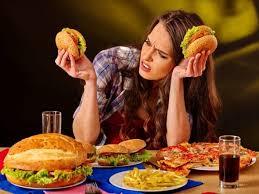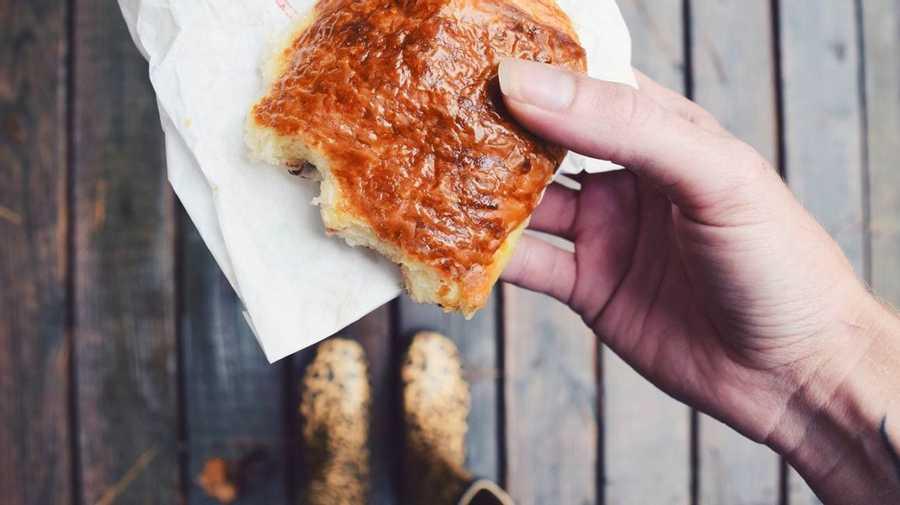Learn more about health with this collection
Navigating and enjoying the thrill of horror and scare experiences
Historical knowledge of Halloween and its origins
Understanding and appreciating Halloween traditions worldwide
Emotional vs. true hunger
Physical hunger
- It develops slowly over time.
- You desire a variety of food groups.
- You feel the sensation of fullness and take it as a cue to stop eating.
- You have no negative feelings about eating.
Emotional hunger
- It comes about suddenly or abruptly.
- You crave only certain foods.
- You may binge on food and not feel a sensation of fullness.
- You feel guilt or shame about eating.
185
502 reads
Emotional hunger isn’t easily quelled
While filling up could work in the moment, eating because of negative emotions often leaves people feeling more upset than before.
This cycle typically doesn’t end until a person addresses emotional needs head-on.
118
427 reads
Ways to cope with stress
Discovering another way to deal with negative emotions is often the first step toward overcoming emotional eating. This could mean writing in a journal, reading a book, or finding a few minutes to otherwise relax and decompress from the day.
Experiment with a variety of activities to find what works for you.
140
393 reads
Move your body
Some people find relief in getting regular exercise. A walk or jog around the block or a quickie yoga routine may help in particularly emotional moments.
115
367 reads
Try meditation
There are a variety of studies that support mindfulness meditation as a treatment for binge eating disorder and emotional eating.
Simple deep breathing is a meditation that you can do almost anywhere. Sit in a quiet space and focus on your breath — slowly flowing in and out of your nostrils.
122
269 reads
Start a food diary
Keeping a log of what you eat and when you eat it may help you identify triggers that lead to emotional eating.
Try to include everything you eat — however big or small — and record the emotions you’re feeling at that moment.
121
290 reads
Eat a healthy diet
Make sure you get enough nutrients to fuel your body. If you eat well throughout the day, it may be easier to spot when you’re eating out of boredom or sadness or stress.
Try reaching for healthy snacks, like fresh fruit or vegetables, plain popcorn, and other low-fat, low-calorie foods.
112
299 reads
Remove common offenders
Consider trashing or donating foods in your cupboards that you often reach for in moments of strife.
Think high-fat, sweet or calorie-laden things, like chips, chocolate, and ice cream. Also, postpone trips to the grocery store when you’re feeling upset.
103
274 reads
Pay attention to volume
Resist grabbing a whole bag of chips or other food to snack on. Measuring out portions and choosing small plates to help with portion control are mindful eating habits to work on developing.
Once you’ve finished one helping, give yourself time before going back for a second.
112
280 reads
Seek support
Resist isolation in moments of sadness or anxiety. Even a quick phone call to a friend or family member can do wonders for your mood. There are also formal support groups that can help.
Overeaters Anonymous is an organization that addresses overeating from emotional eating, compulsive overeating, and other eating disorders.
108
265 reads
Banish distractions
You may find yourself eating in front of the television, computer, or some other distraction. Try switching off the tube or putting down your phone the next time you find yourself in this pattern.
By focusing on your food, the bites you take, and your level of hunger, you may discover that you’re eating emotionally.
110
258 reads
Work on positive self-talk
Feelings of shame and guilt are associated with emotional eating. It’s important to work on the self-talk you experience after an episode.
Instead of coming down hard, try learning from your setback. Use it as an opportunity to plan for the future.
125
328 reads
CURATED BY
More like this
12 ideas
4 ideas
How to Break Free of Emotional Eating
greatergood.berkeley.edu
6 ideas
These Stress-Relieving Techniques Can Stop Emotional Eating
verywellmind.com
Read & Learn
20x Faster
without
deepstash
with
deepstash
with
deepstash
Access to 200,000+ ideas
—
Access to the mobile app
—
Unlimited idea saving & library
—
—
Unlimited history
—
—
Unlimited listening to ideas
—
—
Downloading & offline access
—
—
Personalized recommendations
—
—
Supercharge your mind with one idea per day
Enter your email and spend 1 minute every day to learn something new.
I agree to receive email updates





